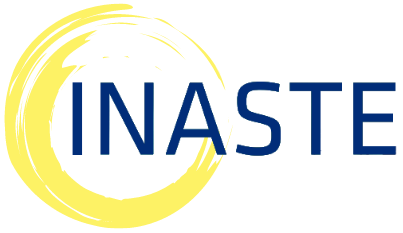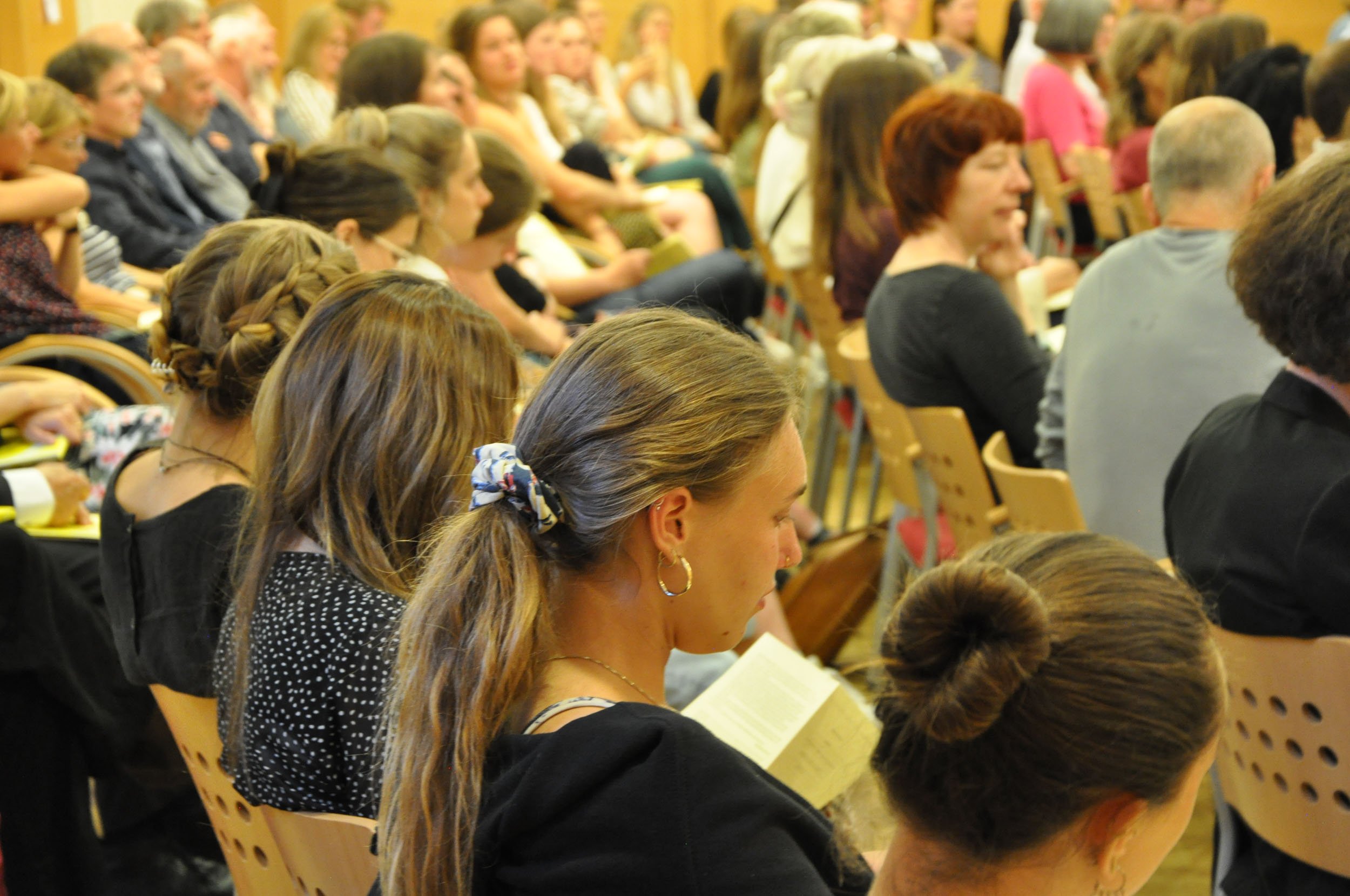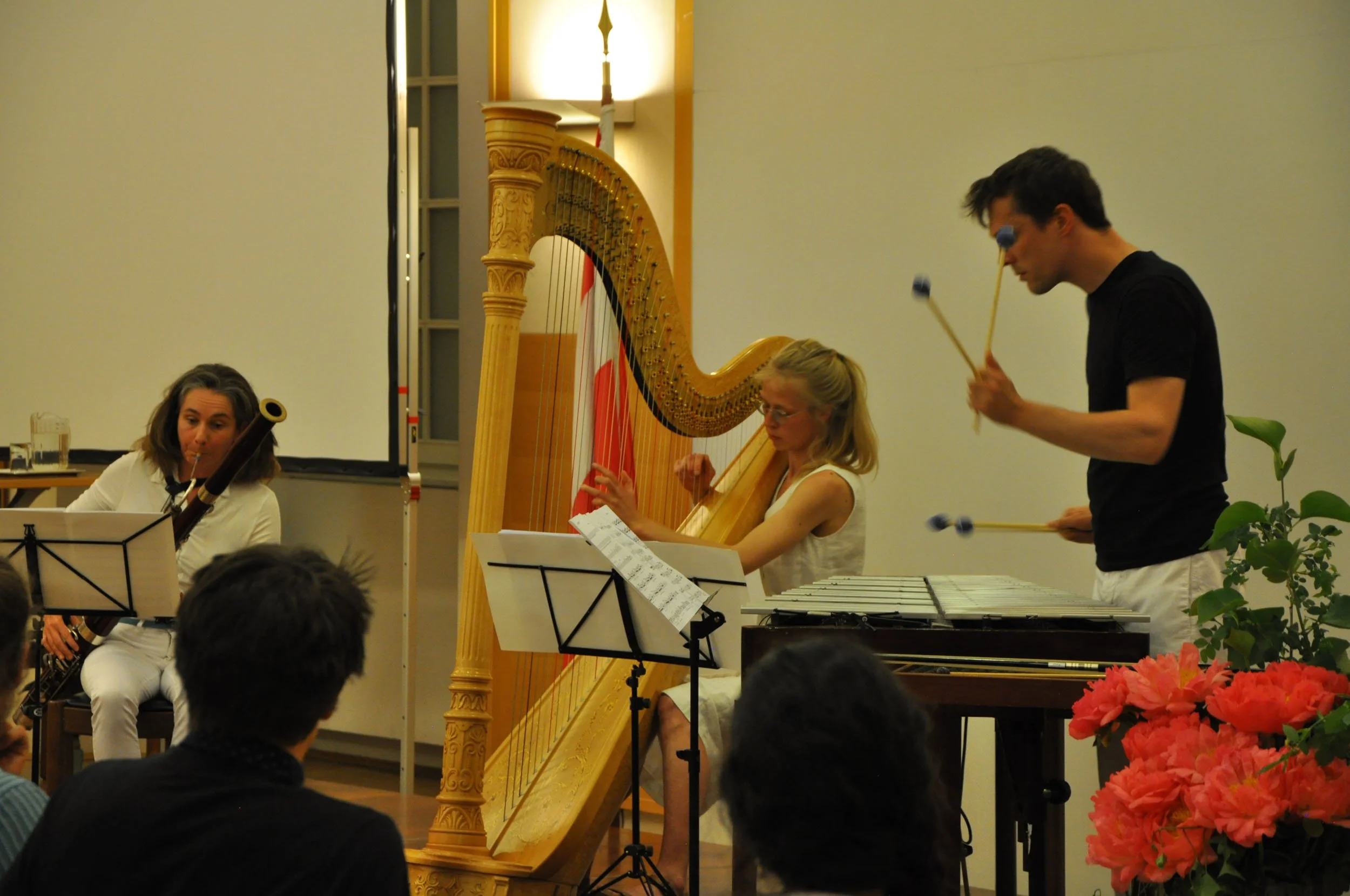
2022 Congress: “Realizing Humanity: Perspectives in Education/Perspektiven für Bildung und Erziehung”
May 18 – 20, 2022, Diplomatic Academy, Vienna
Congress Intentions
Current political and technological developments lend a new poignancy to the complex theme of “humanity“. Political extremism and populism increasingly question a basic con-sensus of humane values in democratic societies, and our encounters with refugees contin-ually test our understanding of humanitarianism. Digitalisation, automation, and the virtu-alisation of growing parts of our economic, social, and cultural life lend a new intensity to the question of our own humanity. The effects of human-driven climate change have led young people in particular to demand for new, ecologically responsible lifestyle choices. Finally, the COVID-19 pandemic and the response to it have shown how essential - and how controversial - questions of “humanity”, “responsibility”, and “solidarity” are in our times.
Many of these societal challenges are manifested in educational contexts in a highly focused form. How can young people today discover and develop their own humanity in relation-ship with the world? What forms of a pluralistic and differentiated society can be developed and realized in an educational context, based not on homogenization and marginalisation but on on diversity and respect? What can educators in today’s world contribute to the re-alization of humanistic values?
The fourth Congress of the International Network for Academic Steiner Teacher Education (INASTE) invites educational scientists and teachers to reflect with us on current challenges and on the development of pedagogical perspectives for humanity.

“Intercultural Waldorf Education: Why here; why now; why us?”
View Dr. Ida Oberman’s keynote presentation powerpoint
More Information
-
Dr. Larissa Beckel, Alanus Hochschule für Kunst und Gesellschaft, Germany: Forced Migration and educational environments at Waldorf Schools
Dr. Jens Beljan, Friedrich-Schiller-Universität Jena, Germany: Resonanzpädagogik: Impulse für die Förderung von Humanität, Verantwortung und Solidarität**
Dr. Constanza Kaliks, Pedagogical Section of the Goetheanum, Switzerland: Realizing Humanity – learning to become for a common world
Dr. Ida Oberman, Community School for Creative Education, USA: Intercultural Waldorf Education: Why here; why now; why us?
Univ.-Prof. Dr. Henning Schluß, Universität Wien, Austria: Verantwortung für die Zukunft. Herausforderungen des Klimawandels für die Pädagogik
Prof. Dr. Nina Witoszek, Oslo University, Norway: Culture as an Incubator of a Sustainable Society
** Lectures were also translated to English
-
"Development toward Responsibility for Human and Nature"
Climate change, extinction, urbanization: the ecological problems of our times show us with increasing clarity that humanitarian engagement is inextricably tied to eco-logical conscience. Regardless of how humanity continues to develop technologically and socially, we will always live in and with nature. Young people today are strongly aware of this. What possibilities can schools offer them to (further) develop this con-sciousness? What can education contribute to a responsible use of natural re-sources? How can the foundations of an ecological consciousness be laid, and the development of ecological and humanitarian engagement be supported in children?
Lectures:
Prof. Dr. Jose Cossa, Pennsylvania State University, USA:
‘uMuntu nguMuntu ngaBantu’: Toward an Epistemology of Global Humanness for Education and Beyond
Prof. Dr. Janne Fengler, Prof. Dr. Stefanie Greubel, Prof. Dr. Jost Schieren, Alanus Hochschule für Kunst und Gesellschaft, Germany:
Fridays for Future - Challenges and Opportunities for Generation Z
Dr. Peter Guttenhöfer, Dr. Tobias Hartkemeyer, AG Handlungspädagogik, Germany:
Aspekte einer elementaren Handlungspädagogik
Synne Myrebøe, Rudolf Steiner University College Oslo, Norway:
Sensuous Critique or: Making Sense of Resilience
Prof. Dr. Wilfried Sommer, Institut für Fachdidaktik an der Alanus Hochschule, Germany:
Understanding Born in the Resonant Space of Embodiment. An anthropological and ecological sketch
Leif Tjarnstig, Ph.D., Waldorf University Collage, Stockholm, Sweden:
Deepening Waldorf didactic using the concept of materiality
Ruhi Tyson, Ph.D., Waldorf University Collage, Stockholm, Sweden:
Educating and enriching the moral imagination
"Learning and Living in Cultural Plurality and Identity"
Modern societies are always pluralistic. Despite this fact, nationalistic and right-wing populist political parties and religious fundamentalists propagate the idea of a cul-turally, religiously, and ethnically homogeneous society. This contributes to an at-mosphere of conflict, which they lament but also profit from. How can a humanistic approach to pedagogy encounter such developments? What contribution can schools make so that diversity and differences are not a threat but an opportunity? What space can varying cultural and religious traditions occupy within schools? How can intercultural dialogue be successfully realized in the context of subject teaching, school projects, etc.?
Lectures:
Prof. Dr. Gabriele Bellenberg, Dr. Anja Böning, Prof. Dr. Wolfram Cremer, Ruhr-Universität Bochum, Germany /
Fernuniversität Hagen, Germany / Ruhr-Universität Bochum, Germany:
Das politische Neutralitätsgebot im Unterricht
HS-Prof. Michael Brockmann, Kirchliche Pädagogische Hochschule Wien/Krems, Austria:
Sprachliche Inklusion als Basis für gesellschaftliche Inklusion
PD Dr. Udo Käser, Andreas Durban, Rheinische Friedrich-Wilhelms-Universität Bonn, Germany:
Toleranz fördern durch Begegnung: Initiativen der Literaturoper Köln als Beispiele kulturvermittelnder Jugendarbeit
Dr. Yifan Sun, Rudolf Steiner University College, Oslo, Norway:
An ethnographic study of ‘Steiner Fever’ in China: Why are Chinese parents turning away from mainstream education towards the holistic ‘way’ of Steiner education?
Prof. Dr. Michael Zech, Institut für Fachdidaktik an der Alanus Hochschule, Germany:
Geschichtsunterricht in Einwanderungsgesellschaften – Befähigung zum kulturellen Dialog, zu Ambiguitätstoleranz und zu individueller Sinnstiftung
"Development between Difference and Commonalities"
People are different – in terms of their cognitive, social, and physical abilities, their achievements, predispositions, and more – but at the same time equal in terms of their individual humanness. School can be a place of achievement-oriented compe-tition, or a space offering a respectful approach to diversity. Which curricular and methodological possibilities can schools offer to contribute to an understanding of differences and of equality? Where and how can learning happen in a pluralistic so-ciety? What challenges does an inclusive society and inclusive schools pose for teachers and for pupils? Which understanding of learning and of achievement do such schools need? What do schools, teachers, and teacher education programs need in order to develop a humane and inclusive pedagogy?
Lectures:
Dr. Eva Dalhaus, Pädagogische Hochschule Freiburg, Germany:
Wahrnehmung und Bewältigung struktureller Gewalt und Diskriminierung durch junge Frauen in der Schule
Prof. Dr. Ulrike Barth, Dr. Angelika Wiehl, Institut für Waldorfpädagogik, Inklusion und Interkulturalität, Alanus Hochschule für Kunst und Gesellschaft, Standort Mannheim, Germany:
Eine an Inklusion orientierte pädagogische Haltung erfordert vorurteilsbewusste Wahrnehmung und Interpretation: Wahrnehmungsvignetten dienen als Einstieg und Vorübung
Wouter Modderkolk, M.Ed., University of Applied Sciences Leiden, Netherlands:
Assessment without fear
Franziska Proskawetz, M.Ed., Westfälische Hochschule Gelsenkirchen, Bocholt, Recklinghausen, Germany:
A journey into the mindsets of teachers on a treasure hunt
Julia Sophia Voigt, M.A., Freie Waldorfschule Ludwigsburg:
„Master of Life“ – ein Bildungsprogramm, das die Schüler stark macht
Prof. Dr. Leonhard Weiss, Zentrum für Kultur und Pädagogik. An-Institut der Alanus Hochschule, Austria:
„Im Leben hat nicht das fertige Wissen einen Wert…“ Anerkennungstheoretische und waldorfpädagogische Perspektiven eines humanen Leistungsverständnisses
"Between Virtual Reality and Humanity: Schools Today"
“Humans only become Human among Humans“, said Johann Gottlieb Fichte over two hundred years ago. Does this still hold true in our times of increasing digitalisa-tion and virtualisation? How do technical developments change our daily life and our understanding of people? What chances and risks do technological develop-ments offer to pedagogy? What understanding of technology do children and young people encounter in school? How do robotics, artificial intelligence, and datafication influence relationships between teachers and students? What can the various sub-jects taught in schools contribute to an understanding and sense of responsibility with respect to nature, technology, and humanity?
Lectures:
Michael Funk, Universität Wien, Austria:
AI-Ethics and Indirect Media Education – What About Social Innovation?
Prof. Matthias Jeuken, Freien Hochschule Stuttgart - Seminar für Waldorfpädagogik, Germany:
Sich verändernde Leib- und Selbsterfahrungen von Kindern und Jugendlichen als Herausforderungen in pädagogischen Kontexten
Julia Kernbach, M.Ed., Alanus Hochschule für Kunst und Gesellschaft, Germany:
Die MünDig-Studie: Quantitative und qualitative Beiträge im Bereich der Forschungslücke "Medienerziehung an reformpädagogischen Bildungseinrichtungen
Prof. Dr. Peter Lutzker, Freien Hochschule Stuttgart - Seminar für Waldorfpädagogik, Germany:
Hartmut Rosa’s Concept of Resonance and its Significance for Education
Dr. Robert Neumann, Freien Hochschule Stuttgart - Seminar für Waldorfpädagogik, Germany:
"Understanding Digitization". How can basic knowledge of digitization be taught in teacher training and in the classroom?
Prof. Dr. Thomas Schmaus, Alanus Hochschule für Kunst und Gesellschaft, Germany:
Den Kairos ergreifen. Grundlagen zur Bildung menschlicher Zukunftsfähigkeit im Digitalen
Sarah Starosky, Bergische Universität Wuppertal, Germany:
Der Mensch im Werden
Benjamin Streit, MA, Alanus Hochschule für Kunst und Gesellschaft, Germany:
Die MünDig-Studie: Beiträge im Bereich "Medienerziehung an reformpädagogischen Bildungseinrichtungen
Marius Wahl Gran, Rudolf Steiner University College, Oslo, Norway:
The use of blackboards in waldorf schools
Prof. Dr. Horst Zeinz, Prof. Dr. Masashi Urabe, Westfälische Wilhelms-Universität Münster, Germany / Hiroshima City University, Japan:
Schulisches Lernen im Schnittbereich von virtueller und realer Welt – eine Reflexion
-
Resonanzpädagogik und Waldorfpädagogik im Dialog
Moderation: Dr. Jens Beljan, Prof. Dr. Wilfried Sommer
Lernen unsere Schulkinder heute das, was sie zur Bewältigung der Herausforderungen in 30 Jahren benötigen?
Moderation: Dr. Peter Guttenhöfer, Dr. Tobias Hartkemeyer
Aesthetic and practical elements in Waldorf teacher education
Moderation: Ruhi Tyson, Ph.D.
-
Congress Committee:
- Prof. Dr. Leonhard Weiss (Chairman), Alanus Hochschule für Kunst und Gesellschaft: Zentrum für Kultur und Pädagogik, Austria
- Prof. Dr. Carlo Willmann (Chairman), Alanus Hochschule für Kunst und Gesellschaft: Zentrum für Kultur und Pädagogik, Austria
- Caroline Bratt, Waldorflärarhögskolan, Sweden
- Prof. Dr. Peter Lutzker, Freie Hochschule Stuttgart, Germany
- Dagny Ringheim, Rudolf Steiner University College, Norway
- Prof. Dr. Jost Schieren, Alanus Hochschule für Kunst und Gesellschaft, Germany
- Prof. Dr. Johannes Wagemann, Alanus Hochschule für Kunst und Gesellschaft, Germany







